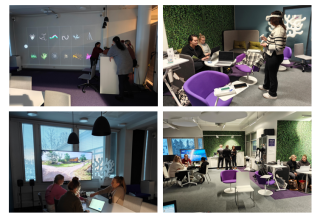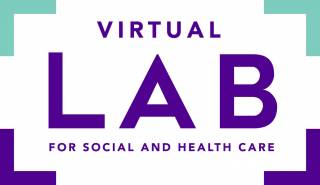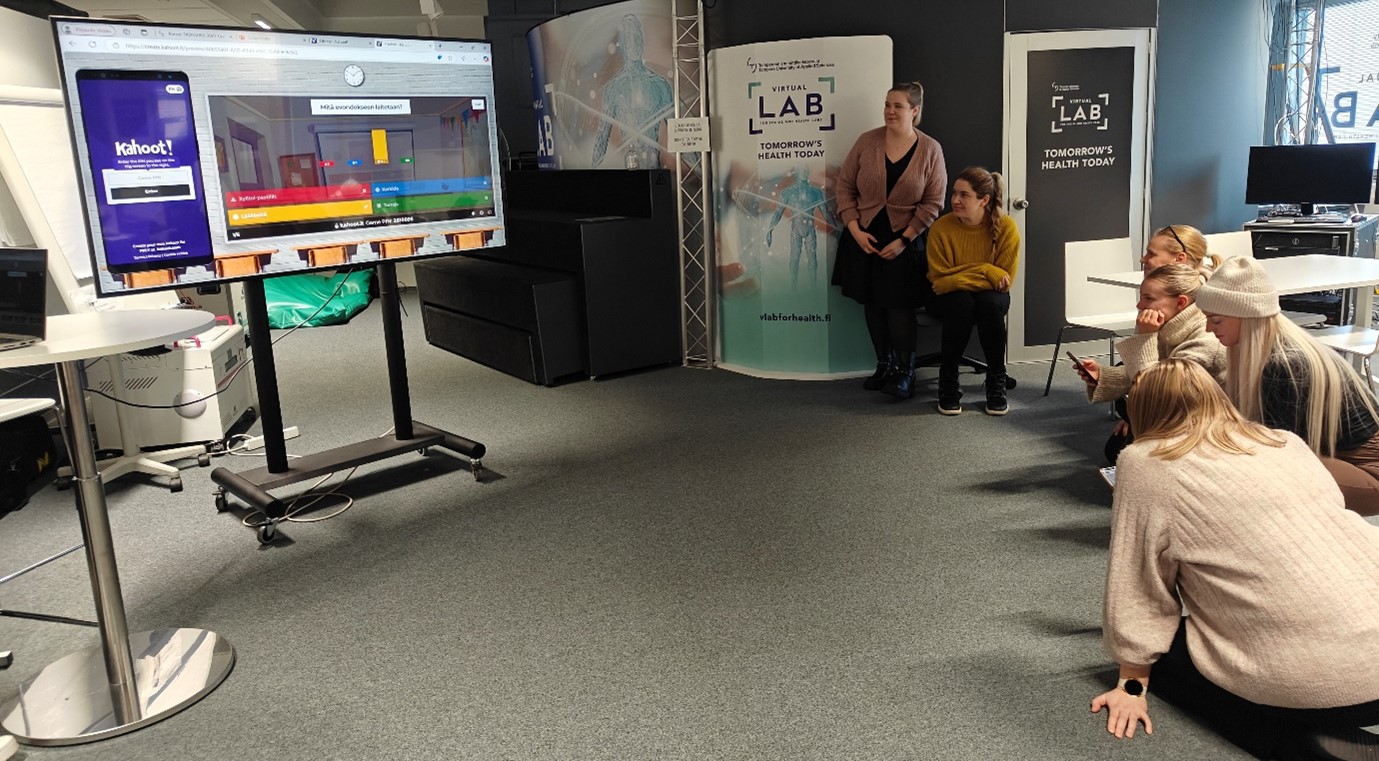The execution of theoretical studies is a three-phase process. In the first phase, the student finds a job which involves elderly care nursing. Most students with a practical nurse background already have a job that meets the requirements when they participate in the Study Theory in practice course. The second phase involves studying and reflecting theoretical knowledge on one’s own work. The third phase is the demonstration of competence, which is carried out on the demonstration day. The demonstration day includes exams and experiential learning at TAMK.
The December demonstration day included exams suitable for demonstrating competence in nursing and encountering a person with dementia. However, since the purpose of the demonstration day is to be a more comprehensive learning event, a two-hour workshop was also held at the Sote Virtual Lab during the day. In the lab, students were challenged to explore the use of technology as part of elderly care nursing. In the workshop, students prepared a presentation as a group on a device/software chosen by the group, in which they presented the purpose of the device or software and concrete examples of its use in elderly care nursing. Additionally, students adressed the following questions in their presentation:
- How does the device or software affect the elderly? What about professionals and relatives?
- What does the device/software prevent/increase/stop?
- Are there risks in using the device/software?
- The impact of the device/software on the elderly’s functional ability/balance/inclusion?
- What ethical perspectives are associated with the use of the device/software?
The PowerPoint and poster presentations created by the students were enlivened by Kahoot quizzes and device demonstrations. The presentations sparked insights into accessibility, cost-effectiveness, equal opportunities, and patient safety. Students also shared their experiences of using devices and software in the social and health care field, leading to fruitful discussions. The workshops and discussions of the day were educational for both the students and the teacher.

Based on feedback, the Study theory in practice -method is well-liked. The demonstration day was considered a pleasant change from electric exams, with half of the day spent on in-person exams both in pairs and individually, and the other half focusing on the technological and digital solutions of the Sote Virtual Lab. Although studying through study theory in practice -method is also teacher-led, the student has much more opportunities to focus their learning on areas where they feel they need more competence. The Sote Virtual Lab brings concreteness to the implementation of new solutions applicable to elderly care nursing today.
Authors: Marjo Tienari and Heimo Outinen


